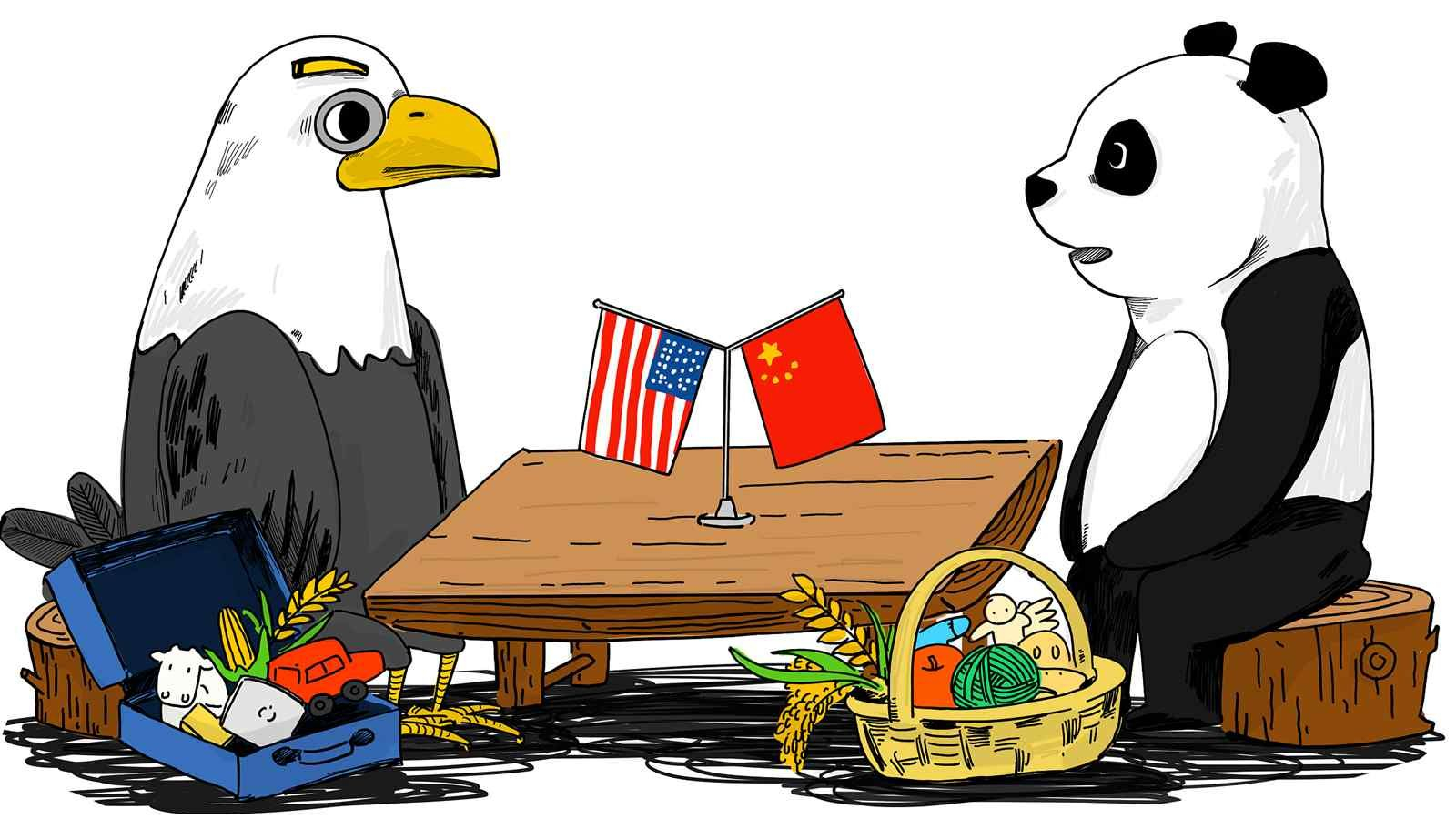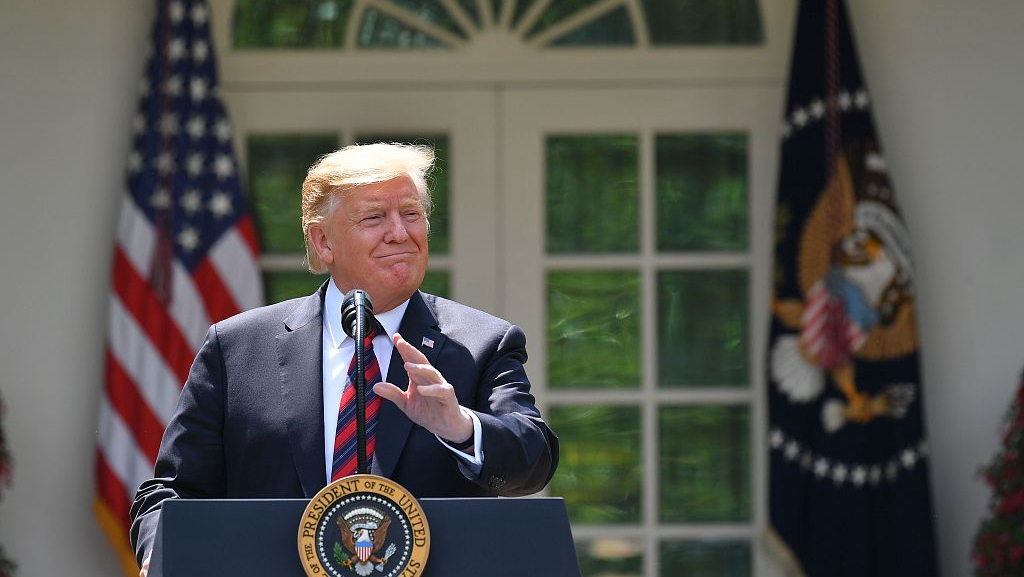
Opinion
12:32, 24-May-2019
Hurting China is causing damage to the world
Jasna Plevnik

Editor's note: Jasna Plevnik is the president of the Geoeconomic Forum Croatia. The article reflects the author's opinions, and not necessarily the views of CGTN.
Given the American administration's trade war on China escalates, the question is whom China can rely on in this delicate moment of its 40-years-long economic history of opening up to the world, except on its own effort.
China's vice premier, the brilliantly modest Liu He, counters to the U.S. side with patience, without being angry or dismissive. If anything, it becomes more and more difficult for China to respect the opposite side's incoherent diplomacy that consists of Washington's relatively rational and promising negotiation talks, which were all of a sudden changed into provocative, malicious actions and growing rage against China's economy even during the negotiations.
What makes an agreement possible for the U.S. side is Beijing's walk into Washington's trade-trap of unilateralism, where it should give up its economic values, system, monetary policy, and 5G as a new source of the country's economic growth and prosperity. But this idea ran into insuperable obstacles.
Washington presents its economic attacks on China's economy as a fair and politically neutral trade issue that the two sides have tried to negotiate on several occasions before. However, never in this way. During the 1990s, the U.S. was opening up to China and different forms of mutual interconnectivity while from 2001 until 2016, it asked of China to work together on developing a multilateral system of global governance. Then, the Polish-American diplomat Zbigniew Kazimierz Brzezinski said the U.S. had turned to "unilateral multilateralism."

U.S. President Donald Trump said his administration is 'getting stuff done rapidly' during an interview on Steve Hilton's Fox News show, May 19, 2019. /VCG Photo
U.S. President Donald Trump said his administration is 'getting stuff done rapidly' during an interview on Steve Hilton's Fox News show, May 19, 2019. /VCG Photo
Yes, China benefited from U.S. diplomacy and its WTO entry in 2001, but it also gave back to the U.S. and others what it had gained by entering the global trading system. With China in the WTO, U.S. exports to the country soon increased by 81 percent.
The Chinese have not spent money on war; they are recognized as peaceful people whose passion for development has contributed much to the economic growth of the whole world, wherever they may be. This has to be mentioned now when the U.S.' total economic war on Beijing is producing damages not only to China but also to global supply chains, consumers, companies, states, and the world economic order.
China is a vital part of the global economic interdependence that has been built since the 1990s. Huawei, the worldwide forerunner in 5G development, could not be sanctioned without U.S. politics crippling Huawei's suppliers from the U.S. to Japan.
Now, global companies, banks, and costumes have more mechanisms to organize themselves than three decades ago to oppose the U.S. administration's political aggression on the worldwide networks of production and trade, not to mention customer interests. In an open letter to the government, 173 U.S. companies said the tariffs on goods made in China "will be catastrophic on the American economy as a whole." However, companies that are competing with Huawei on the global market appear to support the political grip over market competition.
The top responsibility for the stability and progress of the economic world order lies on international institutions, organizations, and groups.
The WTO currently appears more like a monitoring agency of the U.S.' illegitimate pressure on Beijing, global governance and world trade rules, than an organization that was built gradually by 124 nations.
The complex challenges the WTO is facing cannot be met through an escape to the warm shelter of phrases on the importance of trade multilateralism for the world. It is wrong and will have consequences for China's and the world's confidence in the global multilateral system of trade. Accepting responsibility for the worldwide trade future means asking the WTO to sanction the U.S. immediately and find a way how the world and the U.S. can grow closer again.
But for the chief trade institution in the world, it is more comfortable and less risky to define Washington's violation of WTO's rules as a tension between Washington and Beijing, though China does not feed these tensions. China has formulated, at the center of the eruption against its economic interests, a more liberal Foreign Investment Law and launched the China International Import Expo (CIIE).
The Organisation for Economic Co-operation and Development (OECD), whose central aim is economic growth, has decided to point to Washington's responsibility for further escalating the U.S.-China trade war that could, according OECD's analysis, cause significant damage to the American economy, and is likely to lower the level of China's, the U.S. and the global GDP by 2021-2022.
The G20, a real child of financial globalization, should address the U.S. trade war on China and the global economic system at the Osaka summit, if not to safeguard the world's financial stability, then at least to retain some of its credibility.

Chinese-made hats are displayed for sale at a Manhattan department store in New York City, U.S., May 7, 2019. /VCG Photo
Chinese-made hats are displayed for sale at a Manhattan department store in New York City, U.S., May 7, 2019. /VCG Photo
The European Union, a global economic power with a long history of enthusiasm for economic multilateralism, that has also been striving to take a more critical role in the geopolitical world order, hesitates to help China and the world to resist the U.S., which is dragging the international system into more unilateralism, decreasing power for other countries in global governance.
Brussels has lately been disclosing the hypocrisy in its EU-China strategic documents that are all focused on building stronger multilateralism with China at the global world order. When is the EU going to strengthen multilateralism together with China, if not now?
The regulation on establishing a framework for the screening of foreign direct investments into the EU that came into force on 10 April 2019 and is to be applied from October 2020, also reflects the EU's reaction on the U.S. demand to look at Chinese global companies from a security perspective and to screen China's investments because of "strategic reasons."
Nevertheless, Croatia, a small member country of the EU, in the middle of the hunt on Huawei signed an agreement on cooperation between Croatia's state bureau for digitalization and the Chinese global telecommunications giant Huawei ahead of the 2019 16+1 summit in Croatia.
The EU-China summit next year and Germany's EU council presidency in 2020 could turn their focus towards reaching a China-EU investment agreement that would be a historic move forward for both global actors and the world. Will we have to bury these optimistic expectations?
A big part of the EU's appeasement policy, even in the 21st century, is its acceptance of the international financial system to be subject to U.S. regulations and the U.S. financial system. Here lies the power of the U.S. to contest the legitimacy of the UN, the WTO, and ruin the Paris climate agreement and the Iran nuclear deal, making the world a worse, increasingly unfair place.
The EU and other global political powers should stop being prisoners of the appeasement policy, but instead articulate a collective and coherent strategy for the world order. Washington's current economic unilateralism is based on a hard power concept that does not recognize the interests of other countries, international political and economic institutions, companies and consumers.
(If you want to contribute and have specific expertise, please contact us at opinions@cgtn.com.)

SITEMAP
Copyright © 2018 CGTN. Beijing ICP prepared NO.16065310-3
Copyright © 2018 CGTN. Beijing ICP prepared NO.16065310-3